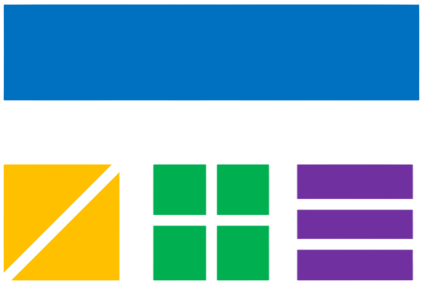Rent vs Buy Calculator Information
What is a Rent vs Buy Calculator?
Rent vs Buy Calculator is a free, easy-to-use tool that helps you compare the long-term costs of renting versus buying a home. Enter your specific financial details including home purchase costs, rental costs, and personal financial information to see which option is more cost-effective over time. This calculator considers all major expenses including mortgage payments, property taxes, maintenance, insurance, and investment opportunities. By visualizing the total costs and break-even analysis, you can make smarter financial decisions about one of life's biggest investments.
How Rent vs Buy Analysis Works
The calculator performs a comprehensive financial comparison by analyzing all costs associated with both renting and buying over your intended time period. It considers factors like mortgage payments, property appreciation, tax benefits, maintenance costs, and investment opportunities. The analysis helps determine the break-even point and provides a detailed cost comparison.
- Buying Costs: Mortgage payments, property taxes, insurance, maintenance, HOA fees, closing costs
- Renting Costs: Monthly rent, renter's insurance, security deposits, upfront costs
- Investment Opportunity: What you could earn by investing your down payment instead
- Tax Benefits: Mortgage interest and property tax deductions
- Property Appreciation: Potential increase in home value over time
Key Factors to Consider
Several important factors influence whether renting or buying is more financially beneficial for your situation:
- Home Purchase Factors: Home price, down payment, interest rate, property taxes, insurance, maintenance, HOA fees, closing costs
- Rental Factors: Monthly rent, annual rent increases, renter's insurance, security deposits, upfront costs
- Personal Financial Factors: Investment return rates, tax filing status, marginal tax rates, time horizon
- Market Conditions: Local property appreciation rates, rental market trends
- Lifestyle Factors: How long you plan to stay, flexibility needs, maintenance preferences
Understanding the Results
The calculator provides a comprehensive analysis showing the total cost comparison over different time periods. The results include:
- Cost Comparison: Monthly and annual costs for both renting and buying
- Break-even Analysis: How long you need to stay to make buying worthwhile
- Visual Charts: Graphs showing cost trends over time
- Detailed Breakdown: All individual cost components
- Recommendation: Which option appears more financially beneficial
When Buying Makes Sense
- Long-term Stay: You plan to live in the home for 5+ years
- Stable Income: You have a reliable job and income
- Good Credit: You can qualify for favorable mortgage rates
- Market Conditions: Home prices are reasonable in your area
- Tax Benefits: You can take advantage of mortgage interest deductions
- Building Equity: You want to build wealth through homeownership
When Renting Makes Sense
- Short-term Plans: You may move within a few years
- Limited Savings: You don't have enough for a down payment
- Market Uncertainty: Home prices are very high in your area
- Flexibility Needed: You need the ability to move easily
- Investment Focus: You prefer to invest your money elsewhere
- Maintenance Avoidance: You don't want the responsibility of home maintenance
Break-Even Analysis
The break-even point is a crucial concept in rent vs buy analysis:
- Total Buying Costs = Mortgage + taxes + insurance + maintenance + closing costs - tax benefits - equity
- Total Renting Costs = Rent + insurance + deposits + investment returns on down payment
- Break-Even Point = Number of years when buying becomes cheaper
Example: $300,000 home vs $1,500 monthly rent
Break-even typically occurs after 3-7 years
Tips for Accurate Calculations
- Be Realistic: Use realistic estimates for all costs and rates
- Consider Location: Factor in local property taxes and insurance rates
- Account for Maintenance: Include ongoing maintenance costs for homeownership
- Think Long-term: Consider how long you plan to stay in the property
- Factor in Lifestyle: Consider your lifestyle preferences and needs
- Consult Professionals: Use this as a starting point, then consult with financial advisors
Frequently Asked Questions (FAQ)
Q: What is the break-even point?
A: The break-even point is how long you need to stay in a home for buying to be cheaper than renting, considering all costs and benefits.
Q: Should I include my down payment in the calculation?
A: Yes, the calculator considers the opportunity cost of your down payment - what you could earn if you invested that money instead.
Q: How accurate are the property appreciation estimates?
A: Property appreciation varies by location and market conditions. Use historical data for your area as a guide, but remember past performance doesn't guarantee future results.
Q: What if I can't afford a 20% down payment?
A: The calculator can handle any down payment percentage. Just be aware that less than 20% typically requires private mortgage insurance (PMI).
Q: How do tax benefits affect the calculation?
A: The calculator includes potential tax savings from mortgage interest and property tax deductions based on your tax filing status and marginal tax rates.
Important Disclaimers
Disclaimer: This calculator provides estimates for educational purposes only. Actual rent vs buy decisions may vary significantly based on your specific circumstances, market conditions, and personal preferences.
Always consult with a financial advisor, real estate professional, or tax advisor before making major housing decisions. This calculator does not account for all possible costs, benefits, or special circumstances that may apply to your situation.
Market conditions, interest rates, and property values are subject to change. Past performance does not guarantee future results. Verify all information with professionals before making financial decisions.
